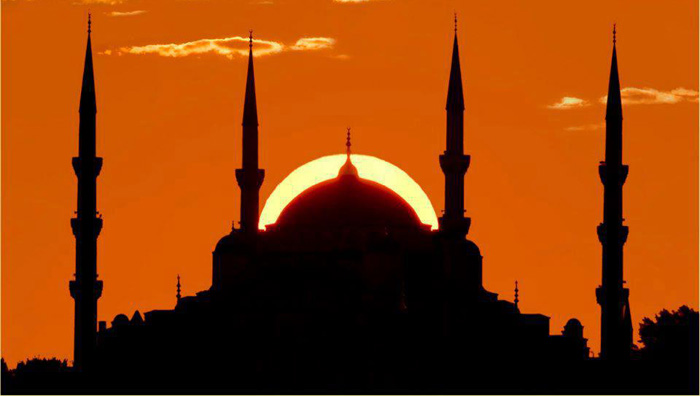Located in Istanbul's central Sisli district sits the Ottoman Empire's first commercial brewery – Bomonti. The historic building was later handed over to the district's Mufti office and is now slated to be demolished to make way for a mosque and residential home. But the project has been met with fierce opposition.
"The Bomonti brewery has historical significance. Demolishing it will destroy our district's charm and further the redevelopment boom, which is not good news for us," said Sisli's District Mayor Muammer Keskin. The head of the Turkish Chamber of Engineers and Architects, Akif Burak Atlar, has also voiced opposition to the plans: "The Bomonti brewery has been neglected for years. Its restoration, rather than its demolition, should be the discussion."
'Diyanet Holdings': how wealthy is the authority?
The controversial re-development on the site of the historic brewery is just one example showcasing the increasing business acumen of Diyanet — the Turkish government department that handles the administration of religious affairs within the country. The state institution employs over 107,000 people, manages hundreds of similar projects in Turkey and abroad. Sarcastically dubbed "Diyanet Holdings", critics warn that the religious authority will soon be indistinguishable from a multinational conglomerate.
According to Diyanet's website, its budget is the equivalent of €825 million — a sum that far exceeds the budget of most state ministries. The Turkish statistics institute TUIK believes the actual figure to be almost double that, estimating that the 2019 budget is around €1.7 billion. On top of that are enormous real estate assets. According to the head of Diyanet, Ali Erbas, the directorate owns 2017 properties.
Writer Omer Saglam thinks Diyanet's financial worth is even more. After investigating its operations, his findings were that Diyanet earns vast sums of money through the Hajj and Umrah pilgrimages, with meat slaughtered during the Islamic holiday Eid ul-Adha, also known as the "Festival of Sacrifice" and through various undisclosed investments.
Diyanet's global presence is far-reaching. Across the world, it slaughters approximately 450,000 animals per year.
Donations from private individuals fund the operation and the meat is distributed to poor people in the name of the donors. Saglam believes the revenue from the meat alone can reach €52.4 million:
"That would have to bring in far more earnings than are officially stated. Unfortunately, I discovered during my research that the expenditure and revenue aren't properly recorded. Diyanet is largely uncontrolled."
The internal structuring of the Diyanet construct is complex and opaque. The authority engages in educational, cultural and charitable activities in 145 countries.
In 1975, the Diyanet established the Turkiye Diyanet Vakfi Foundation initially as a small charity organisation. Now the foundation operates a vast number of businesses and has become especially profitable since it was granted full tax exemption in 1977. Today, the foundation has some 1,000 branches across Turkey.
Through its subsidiary Komas A.S., the foundation is active in the construction industry. Since 1983, the company has built hundreds of religious residential homes and schools, mosques, hospitals, hotels.
Theologian Cemil Kilic is critical of the authority, saying: "Today, Diyanet appears like a gigantic holding company – or even more sinister: Like a state within a state. But it shouldn't be able to act as an economic power." He calls on the religious authority return to its fundamental mission.
"The Diyanet was founded to bring the truths and the Islamic religion to the attention of the public, to convey an understanding of justice and virtue." Kilic sees the Diyanet, as it exists now, as nothing more than a clique that is disconnected from the people. "The institution was originally established to serve the poor and not for its own gain," he said.
"That would be contradicting the logic of Islam."







Comments